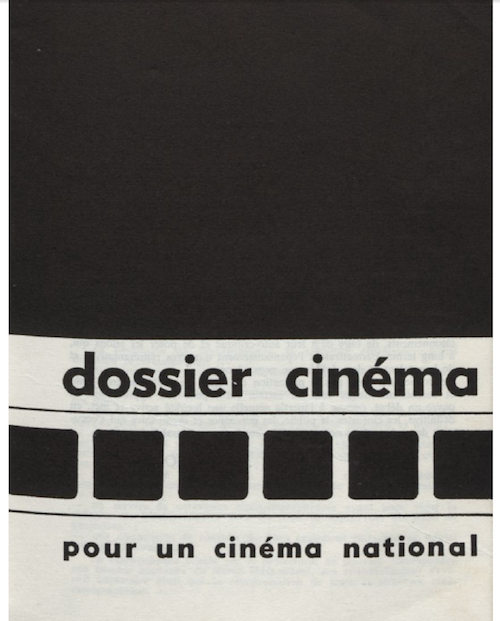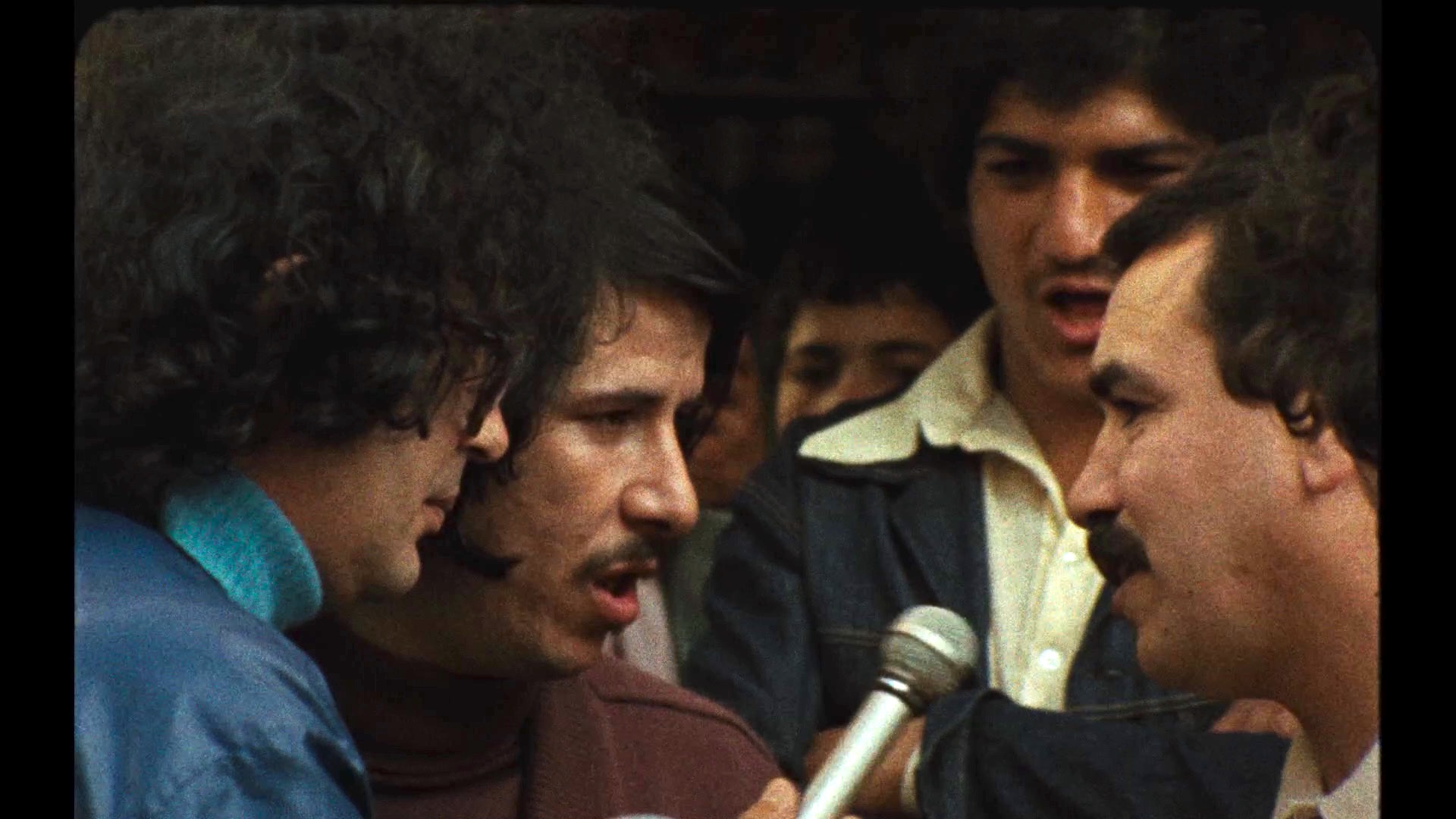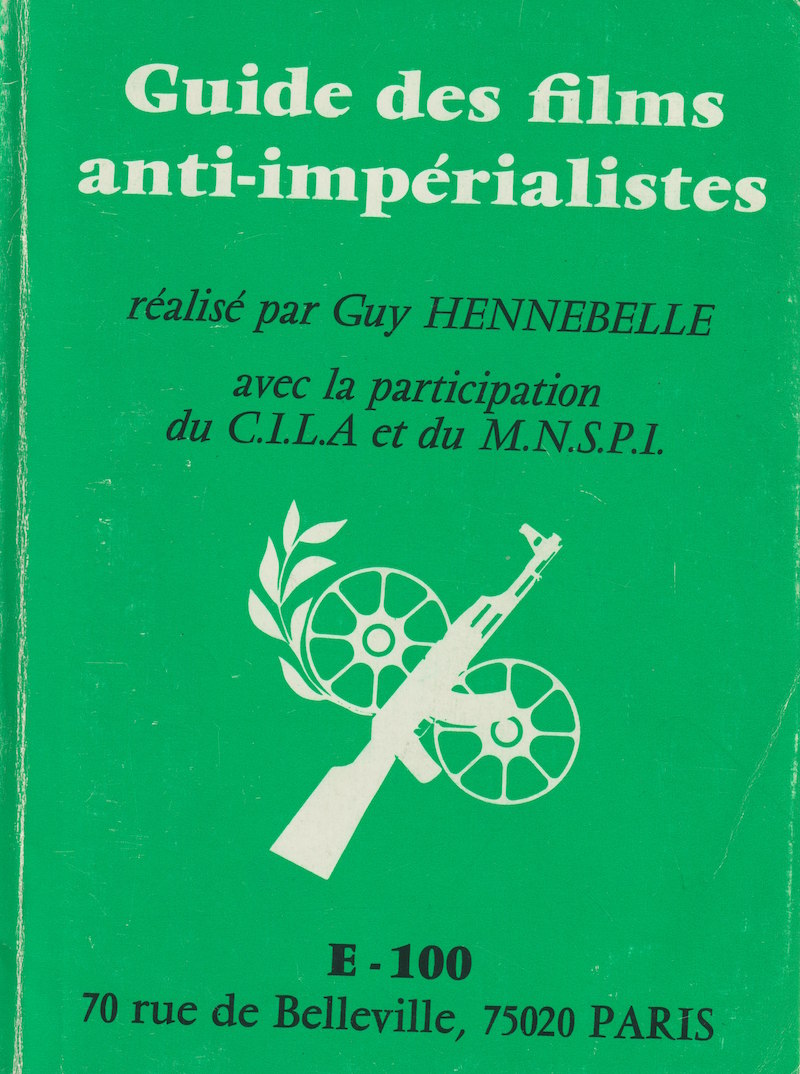
Film still from Mostafa Derkaoui’s De quelques évènements sans signification, 1974
(5.2)
UN CINÉMA AUTREMENT
Mostafa Derkaoui’s early cinematographic works and experiments in Łódź reflect a collaborative spirit that was typical of the Sixties generation, itself marked by fights for decolonisation, the revolutionary spirit of May 1968, the Vietnam War, Marxist theories, agrarian struggles across the world, and the many movements driven by the community and unity (whether Arab, non-aligned, class war, or African unity) of the people’s struggles, and characterised by “international solidarity”.

Mostafa Derkaoui (middle) at the Khourigba Festival, 1977, Ahmed Boughaba collection
When I was at school in Łódź, I wanted to make a film where I’d be as close as possible to faces, words, and gestures. One of my teachers told me that it was impossible, so I decided to make a film only with close-ups. I wanted to make a film that spread like a rhizome. Another kind of cinema without roots, stems, flowers. A cinema of meaningful determination, a determination to say something.”
Interview with Mostafa Derkaoui, 2016
From this collusion in Łódź between future filmmakers, thinkers and artists from around the world, and often from countries that had recently been decolonised or were in struggle, a film like De quelques évènements sans signification [About Some Meaningless Events, 1974, Morocco] was born. It can considered the starting point for Derkaoui’s filmmaking, and even a large part of Moroccan filmmaking.

“We didn’t want to make films in the traditional way, once back in Morocco. Firstly, the existing cinema framework is incompatible with our way of seeing things, and secondly, we wanted to try doing something that would be our own, and not based on what had already been tried either in capitalist or Third World countries, such as Algeria, Egypt and Brazil.”
Mostafa Derkaoui, Pour une dynamique du cinéma collectif [Towards Collective Filmmaking], interview by Mostafa Nissaboury, Intégral, March-April 1974
The film De quelques évènements sans signification (1974) begins with a survey reminiscent of the debate between filmmakers, published in Souffles in 1966. An initial question from a group of filmmakers, who wonder what kind of films they can and will make at a time when a national cinema is in its infancy, and what kind of films the general public are interested in watching. To answer this question, they ask Casablancans in the street and in cafés about their hopes for Moroccan cinema.
“We want to get people used to seeing cinema differently, and we wanted to re-educate ourselves in terms of our gaze and our sensitivity. If we have something to say, it’s in the cultural field. Within political parties, there is no safe activity: if an ideology is to be born, for the moment it will only emerge from cultural activity as a reflection of reality. Creating culture is a vital need for us and for all of society.”
Mostafa Derkaoui, Pour une dynamique du cinéma collectif [Towards Collective Filmmaking], interview with Mostafa Nissaboury, Intégral, March - April 1974

Intégral, review of literary and artistic creation, nos. 7, 8, and 1, ed. Mohamed Melehi, Casablanca, 1971 and 1974, Bouanani archives
This independent production received the collective support, unique in Moroccan cultural history, of painters (Melehi, Kacimi, Hamidi, Chebaa, etc.) who contributed to financing the film by selling their works, a whole circle of intellectuals centred around Mostafa and Abdelkrim Derkaoui, actors from the city theatre, musicians from the popular group Jil Jilala, and the most politically-engaged writers, journalists and poets of the time (Zafzaf, Nissaboury, Jamai, Dziri, etc).
Read more about the film here.

Une expérience à poursuivre [An experiment to be continued], Khalid Jamaï, L’opinion, 1974, A. Derkaoui archives
After De quelques évènements sans significations, the Derkaoui brothers embarked once more on a collaborative project with a collective of filmmakers made up of Laarbi Belakaf, Saad Chraibi, Abdelkrim Derkaoui, Mostafa Derkaoui, Noureddine Gounajjar, Abdelkader Lagtaa And Mohamed Reggab: Les Cendres du Clos [Cinders of the Vineyard, 1976]. The production of the film, a unique experience of collective filmmaking in Morocco led by young filmmakers driven by collaborative ideals, was marked by conflict between its co-directors.

Poster for the collective film Les Cendres du Clos as it appeared in the press, Elaboration Collective, 1980, A. Derkaoui archives
Copyright © 2020 / Léa Morin — CINIMA3 / Talitha



